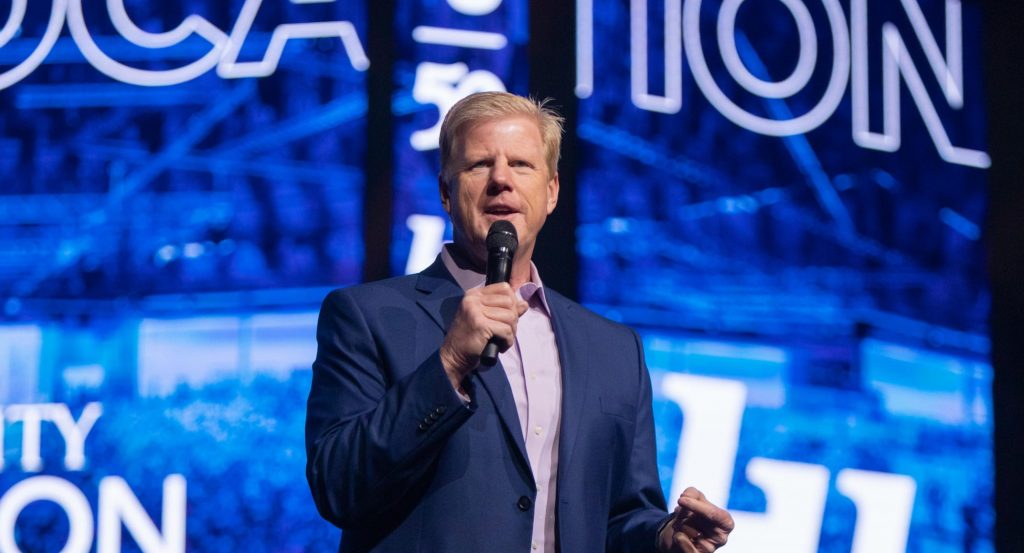In recent years, the ever-popular “Convocation guest” seat has been filled by many great individuals. Brilliant professors, influential business leaders, well-known politicians and eloquent pastors have given powerful speeches during Liberty University’s semiweekly gathering. One of the goals behind the diversity of worldviews and careers in every Convocation guest is to practice critical thinking and Christ-like hospitality at Liberty.
The question that many students face when hearing from a guest they don’t agree with is this: what are the limits for Convocation guests? Should this meeting be something political or business-related, or should there only be pastors and sermons? I contend that Convocation should be political and diverse.
Firstly, Liberty University has the potential to train students in a distinctly Christian practice of open-mindedness. This is not some sort of vague, misty thought that abandons truth for the sake of tolerance. Rather, it is a much-needed skill in Christianity today: it is the ability to truly listen to something contrary to your belief, assess its arguments and assumptions and weigh its worth in light of the application of the Bible. Surrounded by God’s truth, Christians are called to contend for the faith that we have in Christ (Jude 3).
This, of course, means contending for biblically sound theology. When pastors preach at Convo, the student’s responsibility is to discern what is said, assess it through what the Bible says and determine whether it is accurate. This can be applied to all aspects of life, including politics.
Regardless of their party, we should listen to their speech with discerning ears, ready to apply the biblical worldview to the political world. This gives students the unique ability to both familiarize themselves with and prepare to defend against any varying worldview they might encounter.
Two of my favorite Convocation guests were Dr. Cornel West and Dr. Robert George. David Nasser described George as “one of the most prominent conservative voices of our time.” He called West “a cultural icon, one of the preeminent liberal voices of our time.” These two great thinkers are notorious for sharing vastly different views while remaining the closest friends. They are bound together in friendship by their shared view of the cross.
This is the perfect example of how the Christian should practice open-mindedness. While not abandoning biblical truths, two intelligent, compassionate thinkers are able to have meaningful discourse about things they completely disagree on. Whether the person you converse with shares the view of God that you do or not, you can be an example like they have: loving the person first and then engaging in dialogue.
Secondly, Liberty’s openness to diversity gives its students the unique chance to love people outside their own camp. Even if the guest is your direct counterpart, we have the chance to practice gospel-influenced hospitality and love. Rather than instantly shooting down arguments for opposing views, a fine example of intelligence and respect could be portrayed by your willingness to listen and engage in difficult conversation. In opposition to cancel culture and supposed “tolerance” (which, by modern implication, favors intolerance), Christian thinkers have the opportunity to intertwine biblical love and apologetics with intellectual understanding.
It is vital for Convocation to feature the voices of the world that bring friction to our lives. They challenge us, shape us and give us the opportunity to love impartially. In the most important concerns for the student — theology and apologetics, academia and social interaction — diversity at Convocation is a useful and necessary tool.
Bower is an opinion writer. Follow him on Twitter at @J_With_The_Pen.
